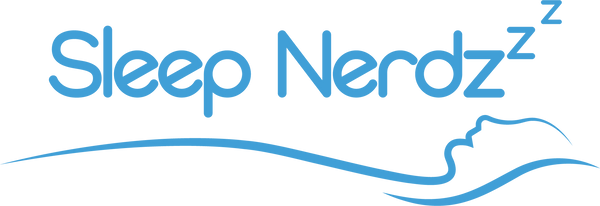Sleep is not just a period of rest—it's a sophisticated biological process that plays a critical role in our health, especially brain function. From memory consolidation and emotional regulation to detoxification and cellular repair, the brain depends on sleep for optimal performance. Understanding the types of sleep and how each stage impacts cognitive and neurological health is key to unlocking better sleep and, ultimately, a better life.
The Sleep Cycle: An Overview
Sleep occurs in cycles, typically lasting around 90 minutes, and each cycle consists of multiple stages. These stages fall into two main categories:
- Non-REM Sleep (NREM)
- REM Sleep (Rapid Eye Movement)
A typical night involves four to six complete sleep cycles, with each cycle transitioning through different stages of NREM and REM sleep. As the night progresses, the time spent in REM sleep increases while deep NREM sleep decreases.
Let's dive into the specifics of each type of sleep and what it means for your brain.
Stage 1: Light Sleep (NREM 1)
This is the initial stage of the sleep cycle, lasting only a few minutes. It's a transitional phase between wakefulness and sleep.
Brain Activity
During this stage, brain activity begins to slow down, which is characterized by the appearance of theta waves. You might experience hypnic jerks or the sensation of falling.
Impact on the Brain
Although brief, this stage is crucial for gently detaching the brain from external stimuli. The brain begins its process of reducing alertness and preparing for deeper sleep.
Sleep Tech Insight
Devices like the ZenRing Smart Ring can detect micro-movements and shifts in heart rate variability that signal the onset of Stage 1 sleep. Understanding your transition periods can help you identify disruptions in sleep onset.
Stage 2: Light Sleep (NREM 2)
This stage constitutes the majority of your total sleep time.
Brain Activity
Brain waves continue to slow with the emergence of sleep spindles and K-complexes, which are believed to protect the brain from awakening due to external stimuli.
Impact on the Brain
Stage 2 sleep is important for memory consolidation and synaptic pruning. It helps the brain process and categorize information learned during the day.
Sleep Tech Insight
The Guardian Mattress Topper by Sleep Nerdz offers real-time feedback on body temperature and movement, which can be crucial for maintaining the uninterrupted, stable environment needed for this phase.
Stage 3: Deep Sleep (NREM 3)
Often referred to as "slow-wave sleep" or "deep sleep," this is the most restorative stage.
Brain Activity
Delta waves dominate, indicating extremely low brain activity. This is the sleep stage where it's hardest to wake someone.
Impact on the Brain
Deep sleep plays a pivotal role in physical and mental recovery. The brain flushes out toxins via the glymphatic system, repairs neural tissue, and strengthens memory consolidation.
Research shows that inadequate deep sleep may increase the risk of neurodegenerative diseases like Alzheimer's.
Sleep Tech Insight
Tracking time spent in deep sleep is essential for brain health. The ZenRing Smart Ring and Sleep Nerdz sleep trackers provide detailed insights into how often and how long you enter this vital stage, enabling data-driven improvements.
REM Sleep: Dreaming and Cognitive Restoration
REM sleep typically begins about 90 minutes after you fall asleep and gets longer with each cycle.
Brain Activity
Despite being asleep, your brain is highly active, resembling the brainwave patterns of wakefulness. This is when vivid dreams occur.
Impact on the Brain
REM sleep is essential for emotional regulation, creativity, and problem-solving. During this phase, the brain integrates experiences and emotions into long-term memory.
Deprivation of REM sleep has been linked to mood disorders, impaired judgment, and reduced cognitive function.
Sleep Tech Insight
With advanced tracking from Sleep Nerdz products, you can monitor your REM sleep patterns and make necessary adjustments in your sleep hygiene or bedtime routine.
Why the Types of Sleep Matter
Each type of sleep serves a unique and essential function for the brain. Disruptions in any one phase can result in cognitive impairments, mood disorders, or long-term neurological issues.
Cognitive Health
- Memory: Both NREM and REM sleep are required for different types of memory consolidation (declarative vs. procedural).
- Focus and Attention: Inadequate sleep, particularly in deep and REM stages, impairs the brain's executive functions.
Emotional Well-being
- Mood Stability: REM sleep regulates mood by processing emotional experiences.
- Stress Resilience: Deep sleep lowers cortisol levels and increases serotonin production.
Physical and Neurological Recovery
- Neuroplasticity: Sleep supports the brain's ability to reorganize and form new neural connections.
- Detoxification: The glymphatic system removes harmful waste proteins during deep sleep.
Factors That Disrupt Healthy Sleep Cycles
Understanding the types of sleep is only useful if you can ensure they occur optimally. Many factors can disrupt your sleep architecture:
- Caffeine or alcohol consumption
- Irregular sleep schedules
- Chronic stress and anxiety
- Sleep disorders like sleep apnea or insomnia
- Inadequate sleep environments
Sleep Tech Insight
The Sleep Nerdz Guardian Mattress Topper monitors environmental metrics like temperature and movement to detect potential disruptors in your sleep environment. Combined with sleep trackers, this allows for a holistic understanding of your sleep quality.
Optimizing Sleep: Tech Meets Neuroscience
Modern sleep technology allows us to observe and optimize sleep. Sleep Nerdz offers a range of tools designed to align with the science of sleep.
ZenRing Smart Ring
- Monitors: Heart rate, blood oxygen levels, movement
- Analyzes: Sleep stages, stress markers
- Improves: Personalized sleep coaching and feedback
Guardian Mattress Topper
- Regulates: Temperature for optimal NREM and REM sleep
- Detects: Movement and environmental changes
- Connects: Syncs with sleep trackers for a full-spectrum analysis
Sleep Trackers
- Evaluate: Sleep cycles, disruptions, and recovery rates
- Integrate: Combine with wearable tech and mattress data
- Act: Receive recommendations and alerts tailored to your sleep profile
Take Control of Your Sleep and Brain Health
You can't manage what you don't measure. With Sleep Nerdz's cutting-edge technology, you gain actionable insights into the types of sleep you experience each night. More importantly, you gain the power to improve them.
A good night's sleep isn't a luxury—it's a necessity for brain health, emotional balance, and overall well-being. Understanding and optimizing the different types of sleep is the first step toward a more energized, focused, and healthier you.
Ready to Upgrade Your Sleep?
Your brain depends on sleep, and your sleep depends on the right tools. Sleep Nerdz offers science-backed, technology-driven solutions to help you monitor, optimize, and improve every type of sleep your brain needs.
Explore the ZenRing Smart Ring, Guardian Mattress Topper, and our full suite of sleep trackers designed with your health in mind. Shop now at Sleep Nerdz and experience the future of better sleep today.
Better sleep starts with better tech. Let Sleep Nerdz guide the way.

